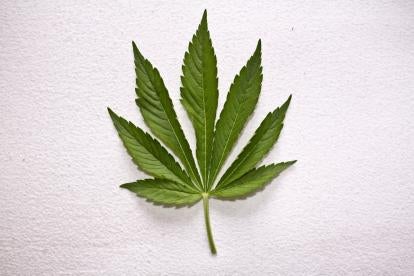The cannabis industry is taking a hit. The nation’s first cannabis product liability lawsuit was filed in Colorado and challenges the cannabis industry’s production process.
Flores v. LivWell Inc., was filed by two marijuana users alleging that the fungicide Eagle 20 was intentionally applied to thousands of marijuana plants at a Denver facility. Plaintiffs Brandan Flores and Brandie Larrabee are seeking class-action status contending that LivWell Inc. (LivWell), one of the largest cannabis growers in the state of Colorado, sold marijuana sprayed with Eagle 20 to medical and recreational customers without adequately warning consumers of the risks associated with Eagle 20. Neither plaintiff alleges they were sickened from ingesting marijuana they purchased at LivWell.
Eagle 20 is a petroleum-based fungicide used to kill mites and pests that flock to plants. It also allegedly contains a chemical called Myclobutanil that, when heated, breaks down into hydrogen cyanide, a known poison. Eagle 20 is approved for vegetation that is not inhaled, but has been banned by the Colorado Department of Agriculture for use on plants like tobacco because of its propensity to release toxic fumes when it is burned. Federal law does not specifically allow any pesticide to be used on marijuana.
According to the complaint, Flores and Larrabee would not have purchased the product if they had been warned that it was sprayed with Eagle 20 and thus could not be heated or inhaled. They seek money damages for an unspecified amount that they claim they overspent to buy the marijuana they say should have been less expensive because of the pesticide.
Plaintiffs argue that although the plants tested within acceptable limits for vegetation, they did not test within state limits for tobacco and other plants which are most likely to be inhaled.
In April, because of concerns about the use of potentially dangerous pesticides such as Eagle 20, Denver’s Department of Environmental Health placed a hold on thousands of marijuana plants, including approximately 60,000 plants produced by LivWell. The hold was ultimately lifted after the plants tested for residue within the state’s acceptable limit for vegetation. Plaintiffs argue that although the plants tested within acceptable limits for vegetation, they did not test within state limits for tobacco and other plants which are most likely to be inhaled.
This case raises several novel questions regarding the duty of marijuana growers to warn customers about potential harms, and highlights some of the complications brought on by the growing cannabis industry and regulations applying across products and markets. The marijuana business is rapidly expanding and new products often come onto the market. This action may also be the first of many asking marijuana growers to upgrade their product safety standards or risk having a product liability lawsuit on their hands.


 />i
/>i

